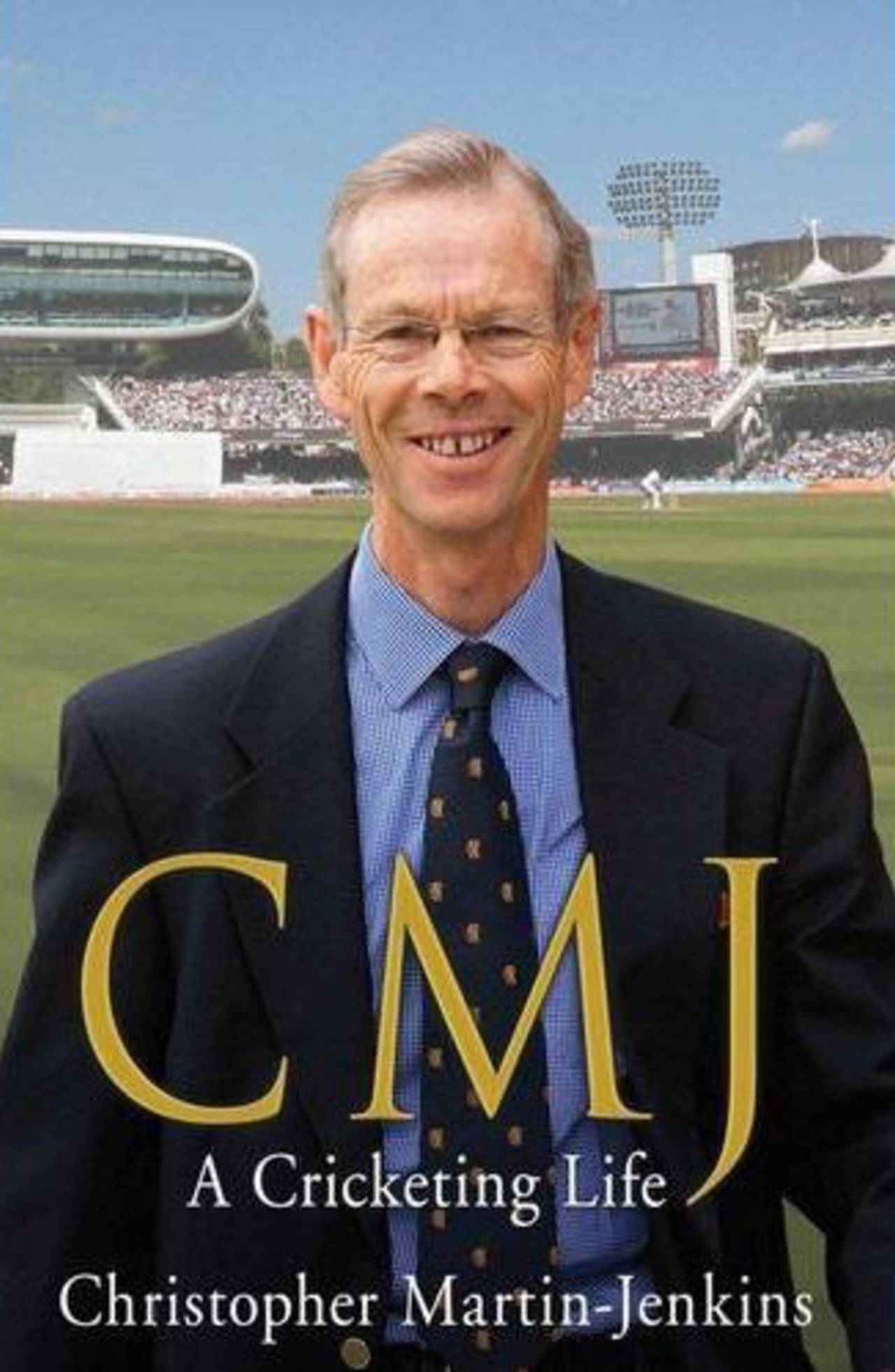Earlier this year, at the end of one of our periodic and tricky conversations about the tribulations at Lord's during and after his year as president of MCC, I asked Christopher Martin-Jenkins whether there would be any saucy material about his long-time Test Match Special colleague Henry Blofeld in his forthcoming memoirs. No, was the response. He thought it would be too boring for that.
But this is far from a dull book. If there is nothing saucy about "Blowers", there is, nonetheless, a shrewd sketch, as there is of various other individuals inside and beyond the media world that CMJ has occupied for as long as any of us can remember. EW Swanton called his autobiography Sort of a Cricket Person (or "Sort of a Cricket Peron" as one newspaper amusingly misprinted the title), and Christopher, his disciple, terms his A Cricketing Life.
Although he has reported and spoken exclusively on cricket, CMJ has never become bored with the game. That has been a marked advantage.
What he has tired of is being away from his close-knit family on tour, and of not-so-new technology, which, famously, he has never begun to master. He tells the story, against himself, of trying to make a mobile call on the TV zapper in his hotel room. He runs into trouble with cars as well.
We knew already that he is a fine, lucid commentator on television as well as on radio, an excellent mimic and a highly conscientious newspaper correspondent. After nine years with the Daily Telegraph, he catches a glimpse of himself in a mirror and realises how grey and thin he has become. He has pushed himself hard all his life, intent as he was on sending his three children to public school and living in a sizeable house, preferably with swimming pool and tennis court. There is a misconception among some cricket journalists that he has long been well off. As he emphasises here, that was far from the case.
Indeed, he reveals much more of himself than might have been expected, given his natural reserve. Who, for instance, would ever have thought he would address the topic of mutual masturbation? But he does. A chapter is devoted to his faith. He admits to a temper in private (well hidden around the grounds, unless he can't fathom the mysteries of his computer) to being indecisive, to being spoken to sharply by the editor of the Telegraph, to upsetting feminists at one of the after-dinner speeches at which he habitually excels; and, in effect, to having not been as well read as he would have liked.
CMJ's account of his after-dinner speeches is one of the best parts of the book. He also tells of the difficulty of staying objective in the press box when his son, Robin, receives a poor decision in the middle; between the lines it is evident that he feels RMJ, as the former Sussex allrounder inevitably was known, should have been given a chance by England. That would have given Christopher more pleasure than anything else in his long career.
And now to two criticisms. Although generous towards most journalists, he is too harsh about Doug Ibbotson, a gentle soul and good writer whom CMJ ditched from the Telegraph. Ibbotson had previously managed to upset Swanton through his coverage of Kent's matches, which doubtless did not help his cause.
Generally, though, CMJ is the kind of upstanding Englishman who will return to his prep school, where once he was beaten and hated the food, to help raise money for new classrooms or to honour the dotty retiring science master. This loyalty has extended in particular to MCC, which honoured him by appointing him president for 2010-11.
His bad luck (he writes a fair bit about luck) was that this should coincide with a turbulent time within both the main committee and the development committee over the so-called "Vision for Lord's" and the consequent fallout when this was terminated by the club's chairman and treasurer. To them, CMJ provides blind loyalty - "we cannot afford to lose them" he said to the dismissed chairman of the development committee - and considerable angst ensued, not least to himself at a time when he has not been well. His account of events in his chapter on MCC is partial.
We trust he will make a full recovery and return to the microphone later this year. This book should sell well, for as was shown when he polled more votes than John Major for election to MCC's main committee, he has many a fan through the medium of TMS and, probably, his work for the Telegraph, the Cricketer and subsequently the Times. The cricketing public recognises a true enthusiast when he sheds his reticence behind the mike, as indeed he does here.
CMJ: A Cricketing Life
by Christopher Martin-Jenkins
Simon and Schuster
£25


